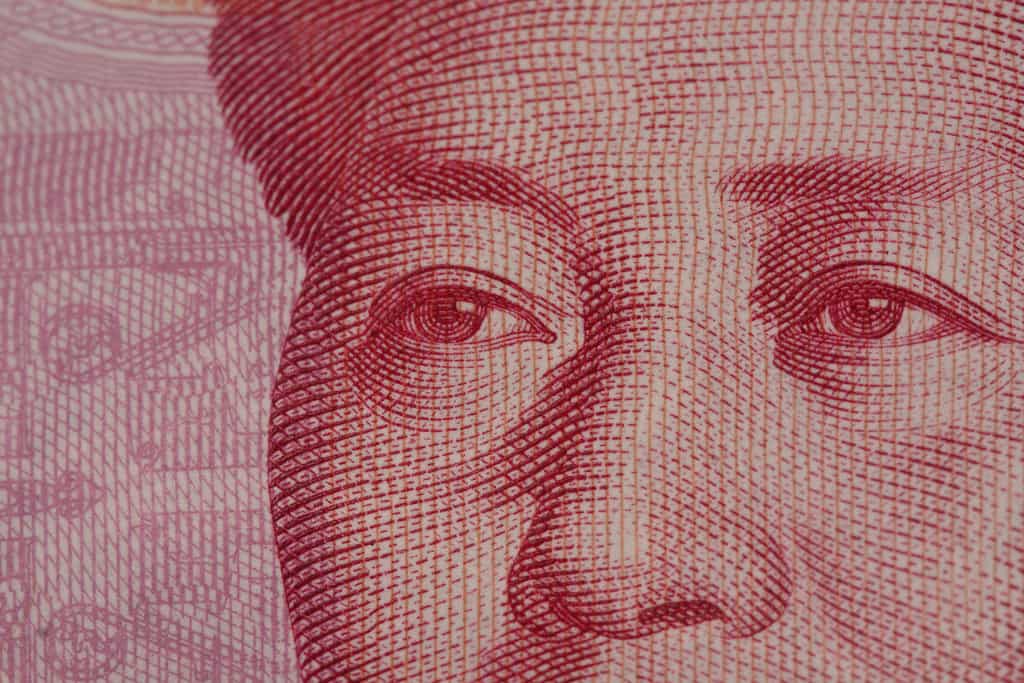Several of China’s leading economists have voiced their opinions on the potential for increased adoption of the Chinese renminbi for international trade purpose to drive global de-dollarisation.
Recent moves by various countries to adopt the renminbi for international trade purposes have created much discussion online and in the Western press about the possibility that the Chinese currency could further advance the process of de-dollarization on international markets.
These include Brazil entering an agreement with China to use both the renminbi and the Brazilian real for trade, and the use of the renminbi by Chinese energy giant CNOOC settle the cross-border purchase of LNG sourced from the United Arab Emirates from France’s TotalEnergies.
Zhu Min (朱民), Vice Chairman of China International Economic Exchange Center and former Deputy Managing Director of the International Monetary Fund, said that US foreign policy decisions have weakened international trust in the dollar and prompted the increased adoption of other currencies for payment and settlement purposes.
According to Zhu, US financial sanctions in particular have “largely undermined market integrity principles and regulations, especially in the wake of the Russia-Ukraine conflict.”
“For example, the US can seize the assets of the Russian central bank and push Russia out of the system, not allowing it to use the US dollar,” he said to Diyi Caijing at the sidelines of the 2023 Bo’ai Forum.
“This has in some sense caused a crisis of trust in the US dollar around the world.
“Prior 1971, the US dollar was based on gold and was a credit currency, so when confidence changed, the world saw a widespread departure from the US dollar and an increase in other foreign exchange reserves. Diversification is happening, not just in China.”
While this will help to drive renminbi internationalisation, Zhu does not expect an overnight shift in the global status of the official Chinese currency.
“More and more countries are now using the renminbi for settlement and trade payments. This is an important step in the internationalization of the renminbi, but there is still a long way to go.” Zhu said.
“It is hard to say right now that the US dollar will be replaced,” said Wu Xiaoqiu (吴晓求), Vice Chairman of the Academic Committee of Renmin University of China and Director of the China Capital Market Research Institute.
“The internationalization of the renminbi will definitely be achieved through an increase in its pricing function, share of payments and settlements, and ultimately international reserves. This is a path that must be taken, but it is still difficult to achieve at the current stage and can only be said to be in the exploratory stage.”
Huang Yiping (黄益平), Vice President of the National School of Development at Peking University, said that full internationalisation of the renminbi would not be possible until China further opens up and develops its financial system.
“At present our capital account is not completely open, so it is indeed challenging to achieve the internationalization of the renminbi,” Huang said.
“For a currency to become international, people need to have confidence in holding it. We need the support of a good financial market, which needs to be strong in at least four aspects.
“The first is that it should be large enough in scale. The second is that it should have a sufficient number of products that are diversified, as investors invest in products not just to buy stocks and bonds, but also for the purposes of asset allocation and risk allocation.
“The third is that it should have sufficient liquidity, so that people can buy and sell. The fourth is that it should be open, which means that it should be very free to enter. In the end, the internationalization of the renminbi requires the support of financial markets in these four areas.”
Tan Yaling (雅玲), an economist at the China Forex Investment Research Institute (中国外汇投资研究院), said in an article published on Sina that the internationalization of the Renminbi faced a range of challenges, and could not be achieved in the short-term.
“The internationalization of the renminbi is a long-term and strategically challenging task, and it is important to recognize its complexity and difficulty, and have reasonable expectations as to achieving the goal of internationalization,” Tan said.
“In the long term, there is still a certain level of uncertainty when settling in local currencies rather than major developed countries’ currencies, and future currency exchange rate trends may not be fixed, which could affect local currency settlement.
“The focus should currently be on preventing speculative risks with the renminbi, and realistically dealing with adverse factors.”
According to data released in September 2022 by the Society for Worldwide Interbank Financial Telecommunication (SWIFT), the US currency far and away remains the dominant form of money for international trade purposes. The world’s major currencies ranked by payment amounts are the US dollar, Euro, British pound, Japanese yen, and Chinese yuan, with shares of 42.31%, 35.15%, 6.54%, 2.88%, and 2.44% respectively.



